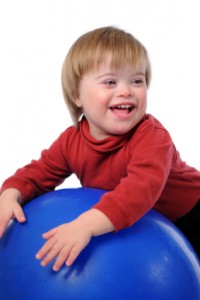
February 2013 marks the fifth annual Jewish Disability Awareness Month (JDAM), a unified initiative to raise awareness and foster support for the inclusion of people with disabilities and their families in Jewish communities worldwide.
We are all disabled in some sense. We were put on this earth incomplete to strive for perfection, and part of the deal is that we all have something that we would regard as major baggage. For some it is emotional, for others financial, for others physical, academic or relationships-oriented. Hakadosh Boruch Hu uses Keilim Shvurim – broken utensils – i.e. us – as His partners in completing the world.
So, when meeting a person who is missing an arm, or their hearing, or suffering from cerebral palsy, our immediate reaction should not only be one of great empathy to their situation, but also a can-do attitude to accommodate their needs. G-d in His wisdom gave us our challenges and He gave them theirs. We don’t know why. But we are all in the same boat really – we are all on this earth to combine our efforts and make the final tikun. We need these people as much as they need us. There is no room for condescension here. The disabled may be more or less disabled than the perceived abled. There are disabled athletes that have reached heights some of the most able-bodied can’t imagine attaining There are those who contribute and influence so much more after they’ve become disabled. The great Rosh Yeshiva of the Mir, Rav Noson Zvi Finkel, was one such person. (So was Christopher Reeve, in his own way.) Accommodation should be thought of in a minimalist sense. It should be seen as the enabling of the person’s full potential.
If we want to imitate G-d, we want to be as acutely sensitive to the disabled as we can be. This is simply an extension of the desire to give to everyone in need as much as possible. There is no length that we shouldn’t be prepared to go to, to make people like this not only as comfortable as possible, by whatever special provision we can possibly make, but by actively empowering these people to be not only normal but exceptional – to make their own unique spiritual contribution to mankind.
But I object to turning my obligation into someone else’s right. I object to the disabled becoming a special interest group, who can somehow make demands for accommodation with the threat of discrimination hanging over my head. This is a tricky thing. My obligations and my acute sensitivity to their special needs do create a right in the recipients. But, we want to empower the disabled to become givers not takers. We are giving to them so that they can give back. As givers, they should take what they need in order to be able to give. We have to be careful with our messages.
It is this same attitude of entitlement which leads to a certain denigration of the halacha, as if to say that our commitment to the halacha shows (in cases like Shabbat) that we are in fact caught up in our legalese rather than in the pain of our fellow Jew. This couldn’t be further from the truth. The halacha is our friend in that it frames for us the parameters within which we operate. It balances our whole spiritual picture, including the types of kindness we can do for others. The idea that our own judgment reigns supreme here – that somehow when our sensitivities seem greater than those of the Torah – is a paean to the arrogance of man emerging from a century when mankind’s moral sense was shown to be flawed beyond anything we could have previously imagined.
Yes, there will always be the hard cases, the cases of such great need that the accommodations I am being asked to make feel overwhelming, just as the disabled himself or herself may feel overwhelmed and/or despair. But if this person came my way, G-d is asking me to embrace him or her with all the power at my disposal. I may not always succeed on a practical level, but I must always succeed in granting that person his dignity and helping him or her with his sense of belonging and mission. Listen carefully to the disabled, not only to hear what he needs, but also you just … just may learn something. In fact, you ought to find whole new worlds opening up to you.



















